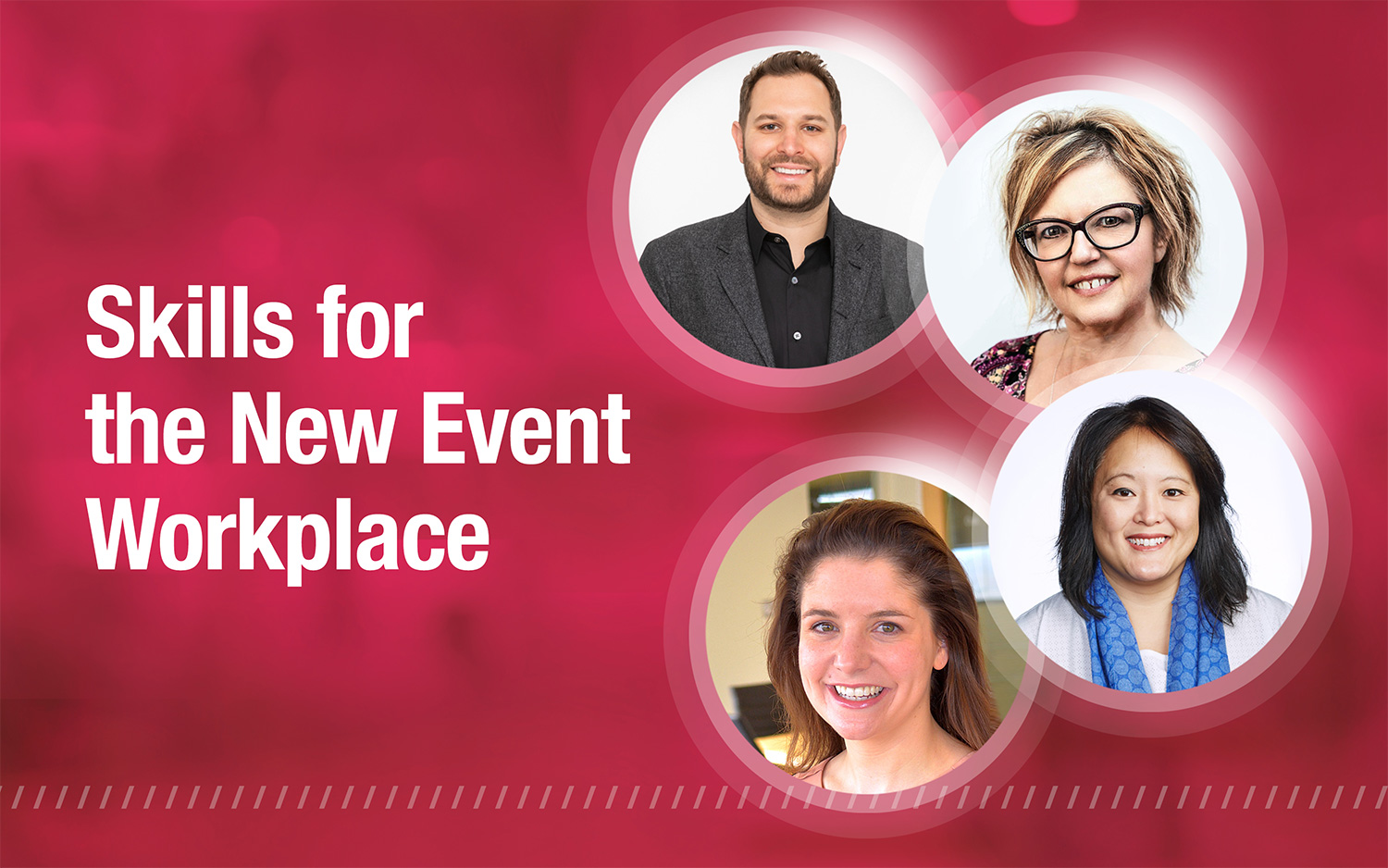Skills for the New Event Workplace
Key Takeaways:
- The pandemic for a reset on how we think about events. It’s an opportunity to create new roles and consider people with untraditional backgrounds.
- Everyone needs to be a tech expert. That’s a given in new roles like technical producer, but everyone on your team should have a basic understanding of how the tech works.
- Multidimensional candidates will have the edge in the job marketplace.
- In-person events will change to reflect our shorter attention spans online. Successful events will offer concise sessions, interactive elements, and purposeful differentiation between virtual and in-person at hybrid components.
Over the past year, most event professionals have likely picked up some new skills, even if it’s as basic as setting up a Zoom meeting.
But for those looking to excel in a post-pandemic job market—particularly those returning to a full-time job after a layoff or furlough—you won’t be stepping into the same industry that you left.
Events have changed, attendees have changed, and the workforce has to change as well to reflect these new demands, according to industry veterans who participated in the recent webinar “Upskilling for the Future of Event Work: Perspectives from the Field.”
“All of our jobs are going to be transformed,” said Brett Hyman, president, CEO and founder of NVE Experience Agency.
The most important skill, they agreed, has to do with technology—and not just for the technical producer.
“Technology is not going away,” said Kerry Lambert, vice president of digital delivery at Freeman. She suggested taking the initiative to explore the landscape of event tech platforms and learn key vocabulary associated with hybrid events.
Other ideas could include learning to code or understanding the basics of augmented reality, Hyman said. “As an event producer, I would imagine that your events will very soon have a lot of new digital layers in them,” he said. “If you don’t understand how the technology functions within your event, it’s going to be hard for you to jump in and perform the event fully successfully.”
Traditional meeting planners who used to program breaks with food and beverage or guide attendees to a new room now think about what happens on screen during a break, said Julie Ho, manager of live learning and event operations at the Project Management Institute. What pop-up message should they see? “Everyone is looking at the content to create that overall experience so we all feel as one community on the platform,” she said.
The pandemic offered a reset about every facet of events. Many event companies and teams have created new roles or asked existing staff to learn new skills to become multidimensional. Hyman said he looks for nontraditional skill sets, like set designers from commercials or music videos, or script writers with experience on documentaries or short-form content.
In fact, in the new world of hybrid events thinking like broadcasters has become a new mindset. Panelists agreed that techniques from TV (or even TikTok) can be helpful: shorter segments, heavy use of visuals, frequently changing visuals to keep people engaged and ward off distractions. The changes also translate to in-person events, which should reflect our collective shorter attention spans.
It’s also important to remember that the virtual component of a hybrid event does not have to match the in-person event. They do not have to run concurrently, and the content can be differentiated to meet the needs of each group.
Engagement strategies can also differ. For Phyl Monroe, director of events and marComm operations at Wolters Kluwer, the solution was devising a portfolio of “memorable moments” like snack boxes or interactive activities to break up stretches of online content.
“We convinced our stakeholders, which by the way was not easy to tell them we wanted to do fun things in their events and that they needed to do them,” she said. “If you don’t do them, you don’t know when people go get coffee [or] let the dog out. But if you all of a sudden do something that shakes everybody up, that’s when they remember.”
Watch and listen to the entire panel for more takeaways about the future of event work.
Announcing Event Leadership Institute’s inaugural virtual event, the 2021 Business, Design and Strategy Summit, on June 3. Learn more and register here.


